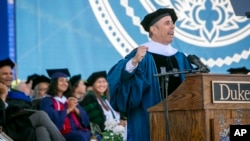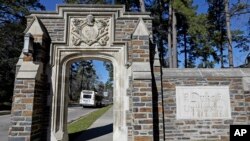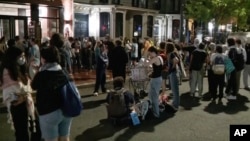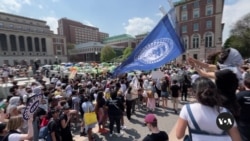Student Union
- By Tara Cheng
Everything You Need to Know about Dating an American and Having the 'Relationship Talk'

Having lived in the U.S. for two years now, I have been experienced many firsts, but none of them compare to the first I experienced last week - my first Valentine’s Day. Well, the first Valentine’s Day I actually got to celebrate, anyway.
It is hard to believe that my first big day romance-wise happened in a country that I am not from and with a guy who is not Chinese. But I think it just made the whole thing fun, cool and memorable.
My friends were so surprised that at 24 years old I had never had a real Valentine’s Day, but I am pretty sure I am not alone (please LEAVE COMMENTS below if this year was also your first V-Day!).
Last Valentine’s Day, my friend told me not to be sad that I didn’t have anyone to celebrate with - when the time is right, it will exceed all your expectations. And he was right.
So let’s go back to talking about the big V-Day date, and chatting about some points that I think are interesting to share.
Having "the talk"
Before V-Day this year, my boyfriend and I had been dating for a couple of months, and we were right at the point of “defining the relationship.” We had a big, formal talk over dinner one night to discuss where we were in this relationship and where it should be going, and this talk basically determined if we would celebrate Valentine’s Day together.
Why do Americans have these big relationship talks?
Two American girls talk about their experiences having "the talk"
Well, there are so many types of relationships in the U.S.: dating, casual dating, relationship, open relationship (this one does not make any sense to me), serious relationship, etc. It’s easy to see how people could be confused about which stage they are and which stage their partners are.
Why V-Day is scary
Valentine’s Day creates pressure to sort out all this confusion, and also gives people an excuse to define their relationship with certainty. Both people have to agree if they are already in or want to move into a relationship, which determines whether they do the V-Day thing together.
I was listening to On Air with Ryan Seacrest a few days ago, and a girl called in crying, saying how disappointed she felt that the guy she was dating did not take her out for Valentine’s Day. The hosts said that this was normal - the guy and girl did not have the exclusivity talk to figure out where they were in the relationship, and obviously they were not on the same page. So she got hurt.
A couple of my American friends told me they would rather just be alone on V-Day, even though they are dating someone. Why? Because they are just not sure if they are ready to take the dating to another level, and they do not want to create a misunderstanding with their partner.
My own V-Day
In my case, both my date and I are very cautious and drama-free. We used this V-Day to make it official that we are only dating each other, and we got the chance to have beautiful V-Day date night at the beach.
In China, and I believe in other Asian countries as well, there is only ONE type of relationship. You are either boyfriend and girlfriend, or pure friends, so there is no chance to be confused. In other words, when it comes to V-Day, people either have it for sure, or don’t even think of it. No discussion needed.
Is this the case in your country? Let me know in the comments!
Here's an example of how frustrating defining the relationship can be :)
Overall, Americans are very very cautious on the dating scene. It can sometimes take a long time for a romantic relationship to develop into an official boyfriend/girlfriend relationship. Sometimes that never happens at all. There are all kinds of different stages of relationships that foreigners need to be aware of, and some of them will always seem kind of ridiculous (like the open-relationship stuff, I am just never able to get it). But the key is that everything is talkable, and open communication is the key to navigating the relationship scene in a country that we are not originally from.
See all News Updates of the Day
Protests dwindle to tiny numbers, subtle defiant acts at US college graduations

A tiny contingent of Duke University graduates opposed pro-Israel comedian Jerry Seinfeld speaking at their commencement in North Carolina Sunday, with about 30 of the 7,000 students leaving their seats and chanting "free Palestine" amid a mix of boos and cheers.
Some waved the red, green, black and white Palestinian flag. Seinfeld, whose decade-long namesake show became one of the most popular in U.S. television history and who continues to draw legions of fans to his Netflix specials and TV appearances such as "Comedians in Cars Getting Coffee," was there to receive an honorary doctorate from the university.
"After spending four years at what is considered one of the finest institutions of higher education in the world, they apparently feel that perhaps some light entertainment will get you all to the final realization, 'You know, I think I've really had enough of this place,'" Seinfeld said.
The stand-up turned actor and recent star, director and co-writer of the movie "Unfrosted," has publicly supported Israel since it invaded Gaza to dismantle Hamas after the organization attacked the country and killed some 1,200 people in southern Israel on Oct. 7. The ensuing war has killed nearly 35,000 people in Gaza, mostly women and children, according to Gaza's Health Ministry, which doesn't distinguish between civilians and combatants.
Students at campuses across the U.S. responded this spring by setting up encampments and calling for their schools to cut ties with Israel and businesses that support it. Students and others on campuses whom law enforcement authorities have identified as outside agitators have taken part in the protests from Columbia University in New York City to UCLA.
At the University of California, Berkeley, on Saturday, a small group of pro-Palestinian demonstrators waved flags and chanted during commencement and were escorted to the back of the stadium, according to the San Francisco Chronicle. There were no major counterprotests, but some attendees voiced frustration.
"I feel like they're ruining it for those of us who paid for tickets and came to show our pride for our graduates," said Annie Ramos, whose daughter is a student. "There's a time and a place, and this is not it."
The small student protest Sunday at Duke's graduation in Durham, North Carolina, was emblematic of campus events across the U.S. Sunday after weeks of student protests roiled U.S. campuses in recent weeks and resulted in nearly 2,900 arrests at 57 colleges and universities.
This weekend's commencement events remained largely peaceful.
At Emerson College in Boston, some students took off their graduation robes and left them on stage. Others emblazoned "free Palestine" on their mortar boards. One woman, staring at a camera broadcasting a livestream to the public, unzipped her robe to show a kaffiyeh, the black and white checkered scarf commonly worn by Palestinians, and flashed a watermelon painted on her hand. Both are symbols of solidarity with those living in the occupied territories.
Others displayed messages for a camera situated on stage, but the livestream quickly shifted to a different view, preventing them from being seen for long. Chants during some of the speeches were difficult to decipher.
Protests at Columbia University, where student uprisings inspired others at campuses across the country, led the school to cancel its main graduation ceremony in favor of smaller gatherings.
The University of Southern California told its valedictorian, who publicly backed Palestinians, that she could not deliver her keynote speech at its graduation ceremony because of security concerns. It later canceled its main graduation ceremony.
At Depaul University in Chicago, graduation is more than a month away. But as the academic year closes, school leaders said they had reached an "impasse" with the school's pro-Palestinian protesters, leaving the future of their encampment on the Chicago campus unclear.
The student-led DePaul Divestment Coalition, which is calling on the university to divest from economic interests tied to Israel, set up the encampment nearly two weeks ago. The group alleged university officials walked away from talks and tried to force students into signing an agreement, according to a student statement late Saturday.
- By VOA News
Students weigh in on how colleges can prepare undergrads for work

Inside Higher Ed surveyed undergraduates on the best way to prepare for the workforce.
One group of students in Oregon built a for-profit snowboarding business as part of their degree. Colleen Flaherty reports. (April 2024)
- By VOA News
Many African students are experiencing US visa rejections

In 2022, 71% of student visa applications from Western Africa were rejected.
Visa agents are not happy – and are finding ways to help applicants with paperwork and the interview. Maina Wururu reports for The PIE News. (April 2024)
- By Tina Trinh
US college students face muted graduations amid Gaza war protests
Commencement ceremonies are being scaled back or canceled at U.S. universities because of security concerns over pro-Palestinian student protests. While some campus demonstrations have resulted in concessions, others have led to violent confrontations. VOA’s Tina Trinh has the story from New York.
- By Melos Ambaye
Police arrest 33 at George Washington University protest encampment

Police in Washington cleared a pro-Palestinian protest encampment at George Washington University early Wednesday, arresting 33 people, authorities said.
Arrests were made on charges of assault on a police officer and unlawful entry, the District of Columbia's Metropolitan Police Department said.
A congressional committee canceled a hearing on the university encampment Wednesday. D.C. Mayor Muriel Bowser and Washington Police Chief Pamela Smith had been scheduled to testify about the city’s handling of the protest before the House Committee on Oversight and Accountability.
University parents and faculty members gathered Wednesday afternoon for a press conference to condemn the handling of the protests by police and school leaders.
“The university clearly does not value the students at all and has endangered the safety of our children by unleashing officers dressed in full riot gear to assault and spray our children in their eyes with pepper spray,” said Hala Amer, whose son participated in the campus protests.
Police said they dispersed demonstrators because "there has been a gradual escalation in the volatility of the protest."
American University professor Barbara Wien said she stayed in the encampment with GW students. She described the student protesters as democratic and peaceful.
Police started to shut down the tent encampment after dozens of protesters marched to GW President Ellen Granberg's on-campus home on Tuesday night. Police were called, but no arrests were made.
Speakers at the conference called for Granberg’s resignation because, they alleged, she refused to meet and negotiate with student protesters.
“You keep inciting violence and ignoring the students,” Amer said about Granberg in an interview with VOA after the conference. “It will just lead to more violence. You need to talk to your students.”
GW officials warned students that they could be suspended for engaging in protests at the school’s University Yard, an outdoor spot on the campus.
"While the university is committed to protecting students' rights to free expression, the encampment had evolved into an unlawful activity, with participants in direct violation of multiple university policies and city regulations," a GW statement said.
More than 2,600 people have been arrested at universities across the country in pro-Palestinian protests, according to The Associated Press.
Students are calling on their university administrations to divest investments from Israel or companies with ties to Israel. Demonstrators have gathered in at least 50 campuses since April 17, carrying signs that read "Free Palestine" and "Hands off Rafah."
Rafah is Gaza’s southernmost city, where most of the territory’s population has clustered. The area is also a corridor for bringing humanitarian aid into the Palestinian territory.
Israel seized the Gaza side of the Rafah crossing on Tuesday, while shutting off the nearby Kerem Shalom crossing, drawing criticism from humanitarian groups. Israel said Wednesday that it had reopened Kerem Shalom.
The nationwide campus protests started in response to Israel's offensive in Gaza that began after Hamas launched a terror attack on Israel on October 7, killing about 1,200 people and taking roughly 250 hostages.
More than 34,000 Palestinians have been killed in Israel's offensive, according to the Gaza Health Ministry. Israel warned it could "deepen" its operation in Rafah if talks failed to secure the release of the hostages.
Some information for this report came from The Associated Press.










